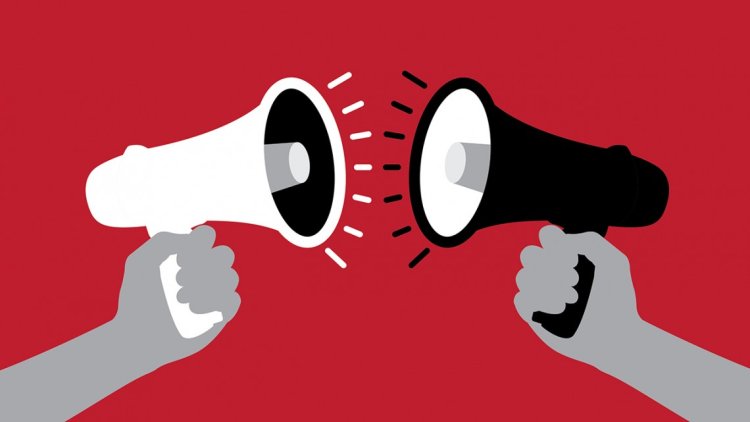International Challenges to Respect and Tolerance
Explore the complex issues surrounding disrespect towards countries and their flags, with a focus on Western countries like the US, Canada, and the UK. We delve into recent tensions between Canada and India, the policies of Prime Minister Justin Trudeau, and concerns regarding Canada's position on extremists.

People from many nations and cultures communicate on a regular basis as the world becomes more linked. While globalisation opens us new avenues for understanding and collaboration, it also poses new obstacles to international respect and tolerance. In this blog article, we will look at the complicated issues surrounding contempt for countries and flags, with a particular focus on Western countries such as the United States, Canada, and the United Kingdom. We will analyse current tensions between Canada and India, as well as Canadian Prime Minister Justin Trudeau's policies and worries about Canada's stance on extremism.
International Challenges to Respect and Tolerance: A Canadian Perspective
The Increasing Problem of International Disrespect
In recent years, there has been an increase in disrespect for countries and their flags. With the growth of social media and the quick distribution of information, flag destruction, insulting remarks, and actions of aggression against other nations have become increasingly common. With their varied populations and democratic principles, Western nations have frequently found themselves at the centre of these conflicts.
Canada, which is recognised for its multiculturalism and tolerance, has not been immune to these issues. Indeed, recent events in Canada have emphasised the complexity surrounding international respect and tolerance.
Canada-India ties have been especially tense in recent years, with both governments hurling accusations and voicing alarm about each other's conduct. These conflicts have created serious concerns about the implementation of free speech, dealing with extremism, and states' duties to defend the rights and security of their populations.
Tensions between Canada and India: A Deep Dive
The tensions between Canada and India have sparked considerable discussion and speculation. Incidents in both Canada and India were featured in a film emphasising the topic of disrespect for countries and their flags. According to the film, Canada accused India of murdering a Sikh leader on Canadian grounds, resulting in poor ties between the two countries.
Justin Trudeau, the prime minister of Canada, provided evidence to support this claim, but many people have questioned it. These statements have garnered criticism from a variety of sources due to the lack of specific evidence. The film emphasised the presence of pro-Khalistani thugs and terrorists in Canada, as well as the Canadian government's apparent passivity in addressing these concerns. The truth of these assertions is still being debated.
It is critical to handle these conflicts with sophisticated awareness. Rather than making broad generalisations or participating in divisive language, it is critical to analyse the nuances of the issue as well as the various viewpoints of both nations concerned.
Examining Trudeau's Policies and Their Impact
Justin Trudeau, the Prime Minister of Canada, has frequently been hailed for his progressive ideas and dedication to diversity. However, his response to certain topics has been criticised. One such topic is free expression.
Freedom of expression is an important concept in Canada, although it is not absolute. Hate speech is subject to legislative limitations in order to protect people and prevent the instigation of violence or prejudice. However, concerns have been raised about where the line should be set in balancing free expression and the need to protect vulnerable populations.
The ease of Canadian citizenship for those with criminal histories is a major worry relating to Trudeau's initiatives. While the objective may be to provide opportunities for rehabilitation and reintegration into society, it raises concerns about the possible hazards and obligations connected with awarding citizenship to criminals.
Drawing the Line in Canadian Free Expression
The degree of free speech in Canada has long been a source of contention. While the government values free expression, there are restrictions in place to prohibit hate speech, discrimination, and the encouragement of violence.
It should be noted that the balance between free speech and limits varies per province. Provincial governments have the right to establish legislation that may override federally granted liberties. As a result, there are variances in how free speech is protected and controlled across the country.
These variances in speech limitations have created worries among some people who fear that provincial legislation may unfairly restrict their freedom of expression. It is a delicate balance that must be constantly assessed and changed to guarantee that individual rights are protected without infringing on the rights of others.
Protests and Extremist Activity Allegedly Suppressed in Canada
There were charges in the aforementioned film of the Canadian government repressing peaceful trucker demonstrations and backing radicals, including a former Nazi SS officer. These claims are very concerning since they raise worries about Canada's reputation as a safe haven for extremists, as well as the government's previous reluctance to handle extradition petitions involving persons with Nazi ties.
While it is vital to properly examine these charges and address any real concerns, it is equally critical to tread lightly on the subject. Sensationalised statements and baseless accusations can exacerbate division and lead to a climate of fear and mistrust.
It is critical to realize that Canada, like every other country, has shortcomings. However, it is equally critical to recognize that progress in resolving these difficulties is being made. Building a more inclusive and tolerant society requires public knowledge, open conversation, and participation with various populations.
The world's increasing interdependence has posed problems to international respect and tolerance. Western countries including the United States, Canada, and the United Kingdom have had their fair share of scandals involving contempt for countries and flags. Recent conflicts in Canada and India have raised critical considerations about free expression, extremism, and states' responsibility to defend their citizens' rights and security.
While progressive in many areas, Canadian Prime Minister Justin Trudeau's policies have also come under attack. The balance between free speech and the imperative of avoiding hate speech and discrimination remains a point of contention.
Allegations of protest suppression and backing for extremists are highly concerning, emphasising the importance of comprehensive investigations and open processes in order to retain public trust.
Finally, society may aim for greater respect and tolerance on a global scale via open discourse, inclusion, and ongoing examination of policies and actions.
Meanwhile…
You can just join our Ai account management program and relax. We will make at least 1% profit for you on your account – Check out how by clicking on the link below.
Have fun trading!
Have a great journey, and may you catch some big waves on your way to prosperity!
To see Ai Forex Trading for real, click here.
https://www.myfxbook.com/members/SankarGanesan/tradefxp-trend-antitrend-day-trading/10404725
To read why you should be with us, click here
To open an account, click here.
To see our regulation certificate: click here.
To see our news with the IFMRRC: click here.
For claims, click here.
For the main site: click here.
For blogs and articles: click here.
Main Website: www.tradefxp.com



 admin
admin 










